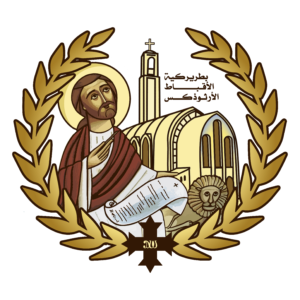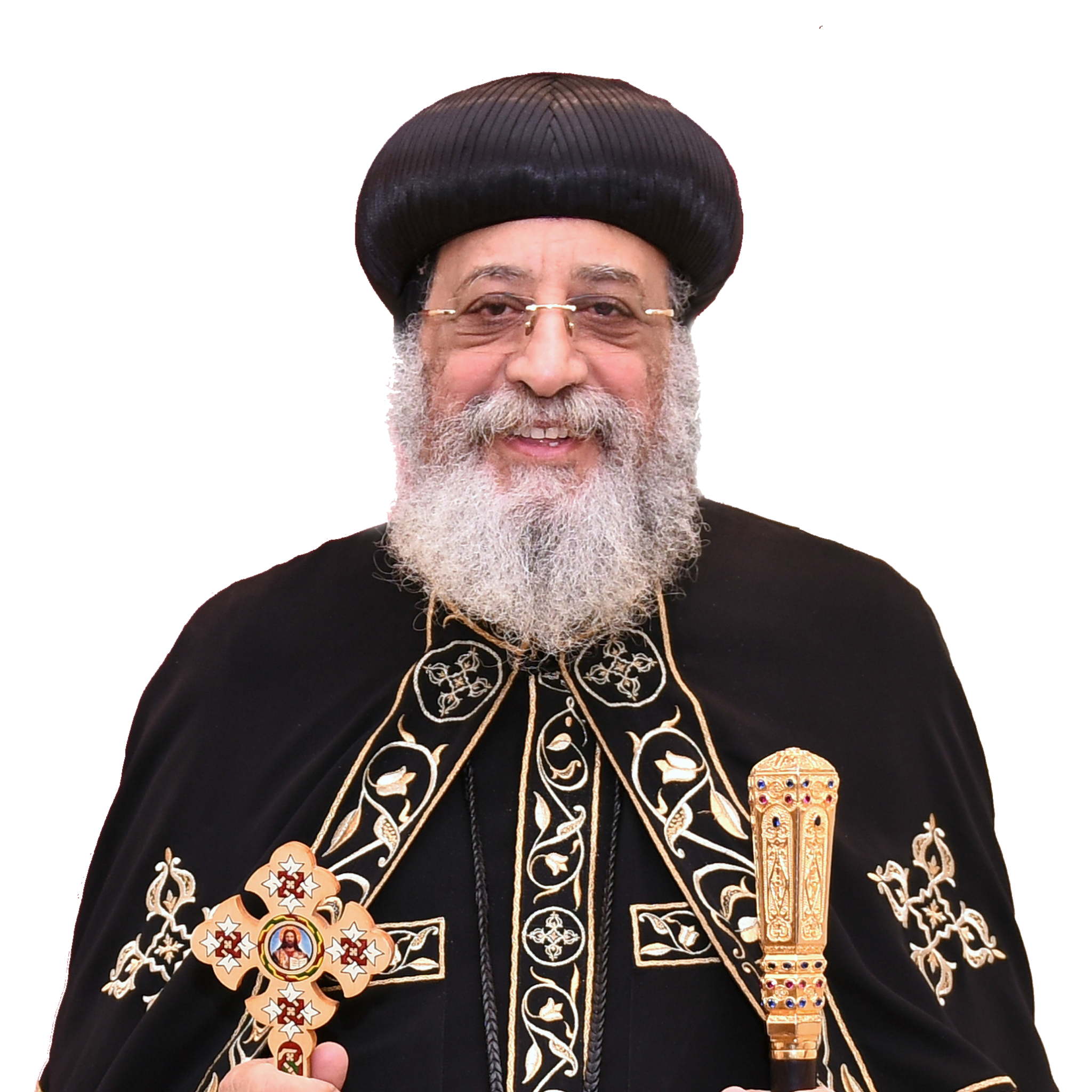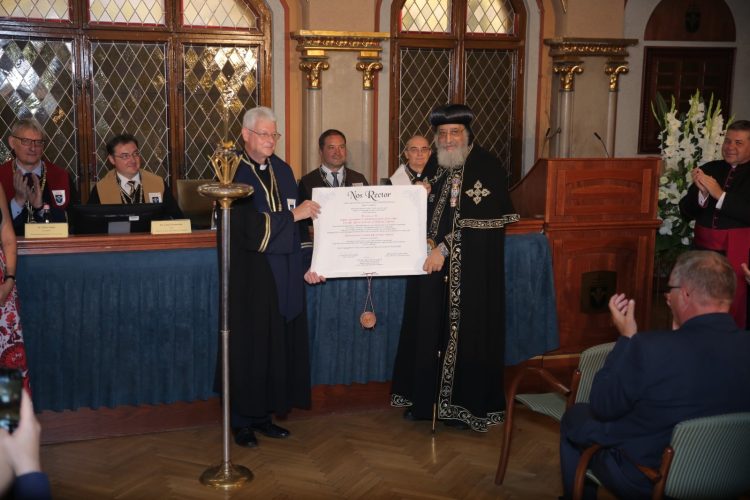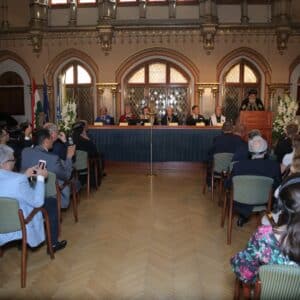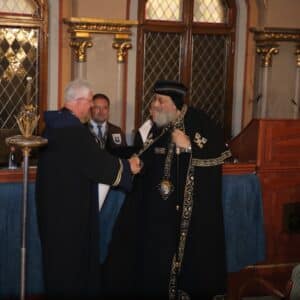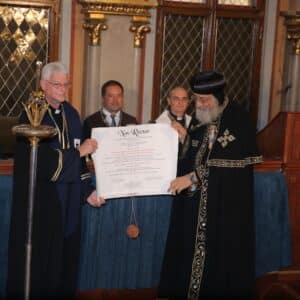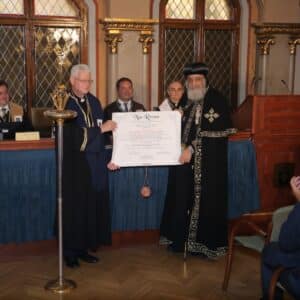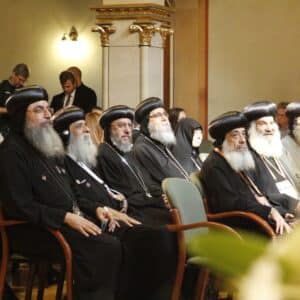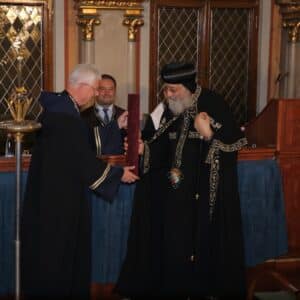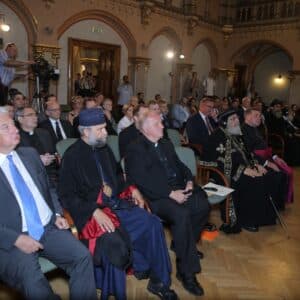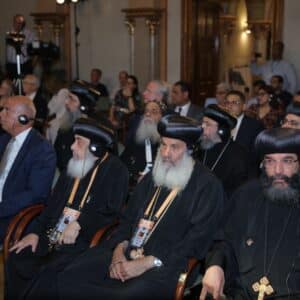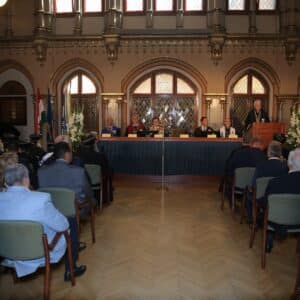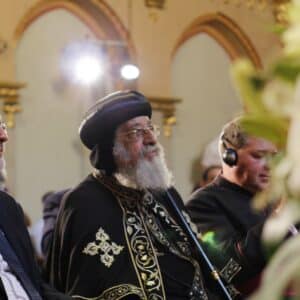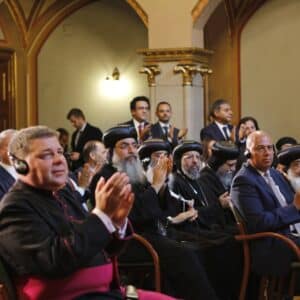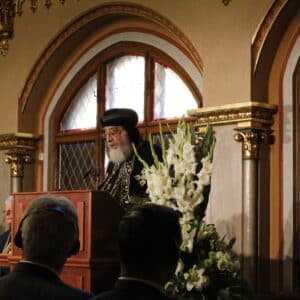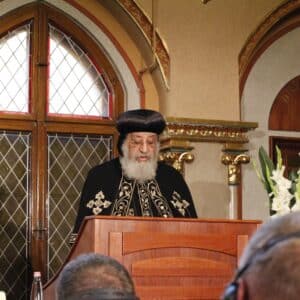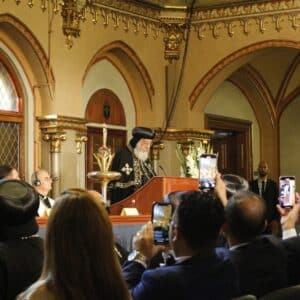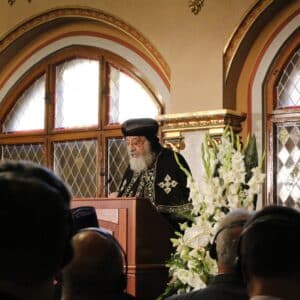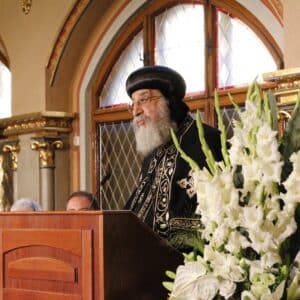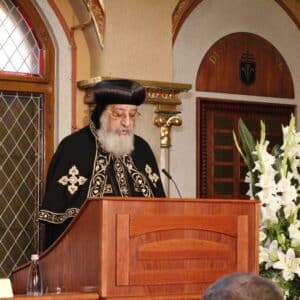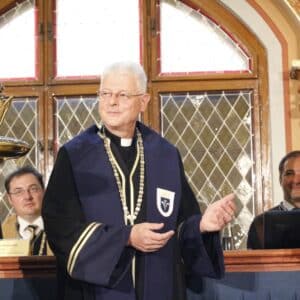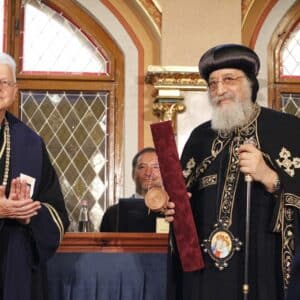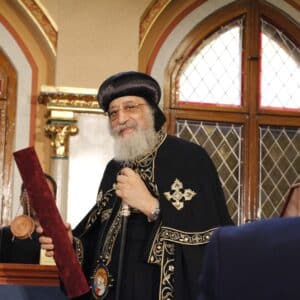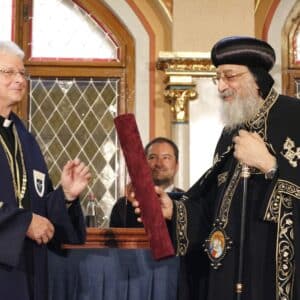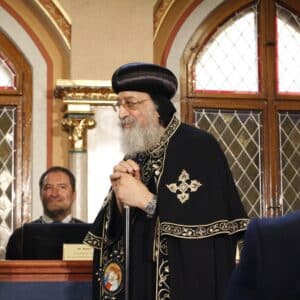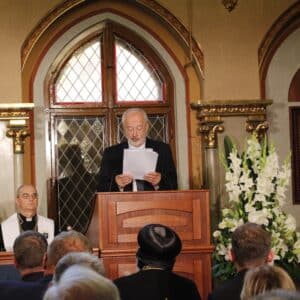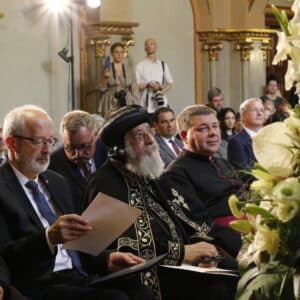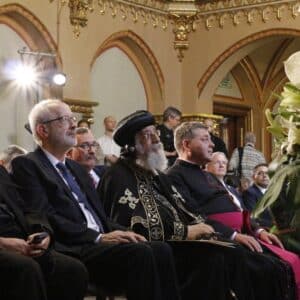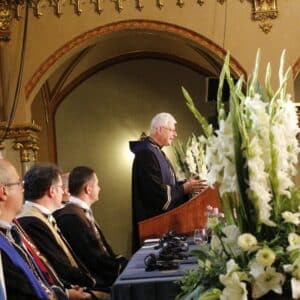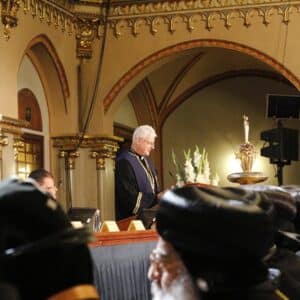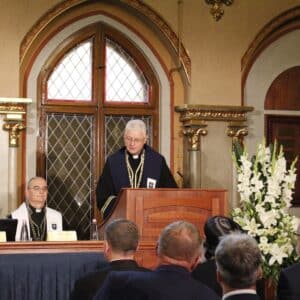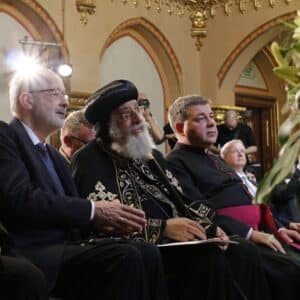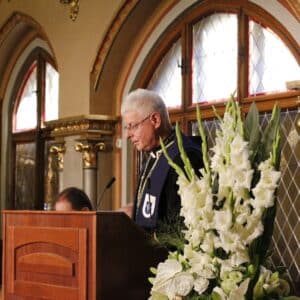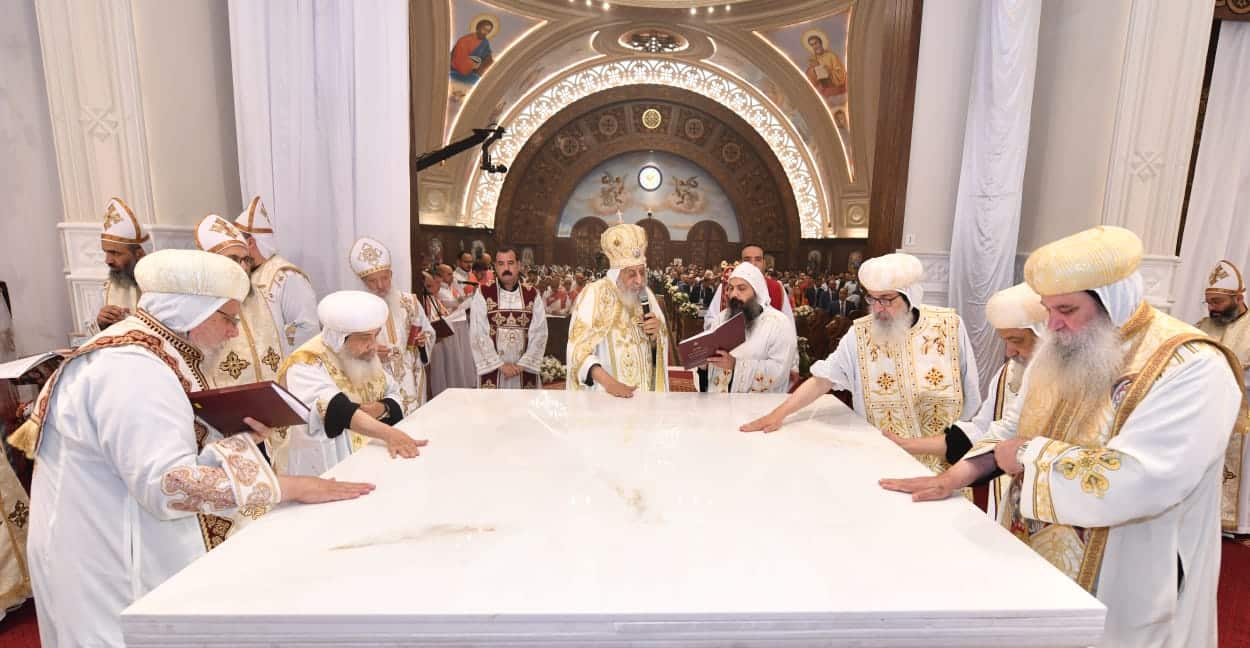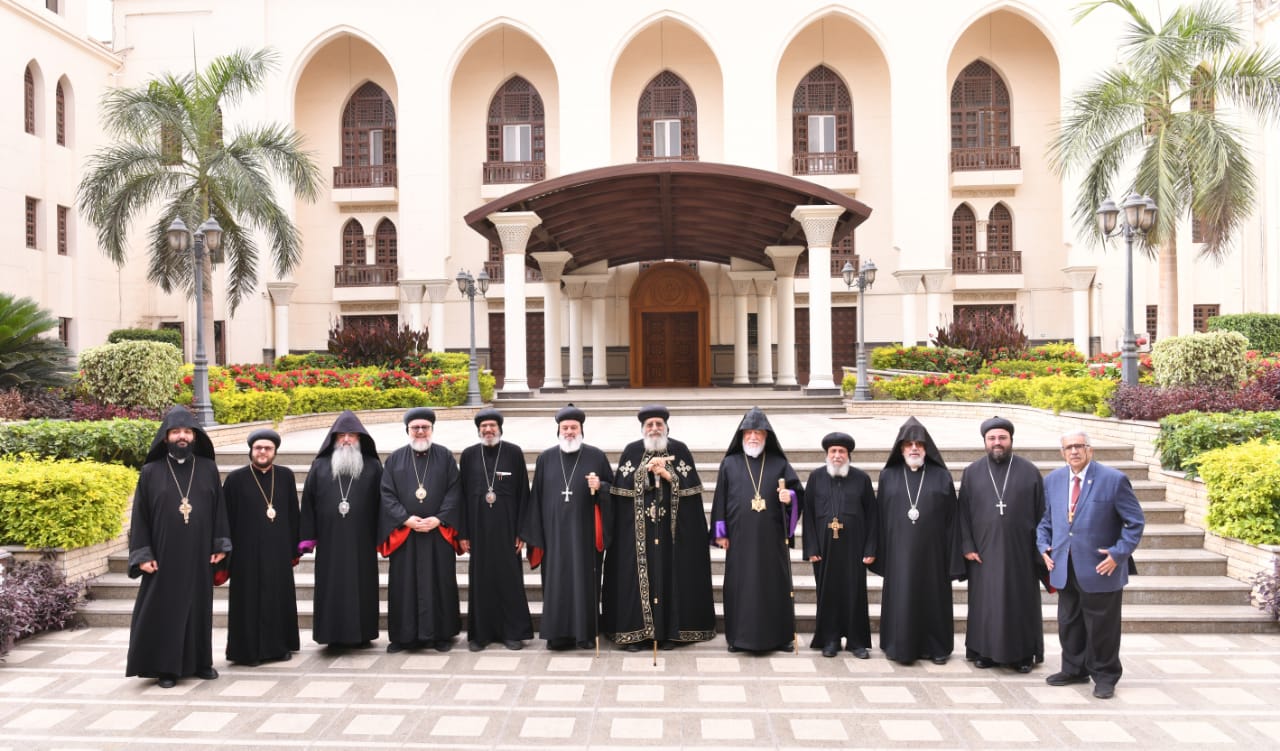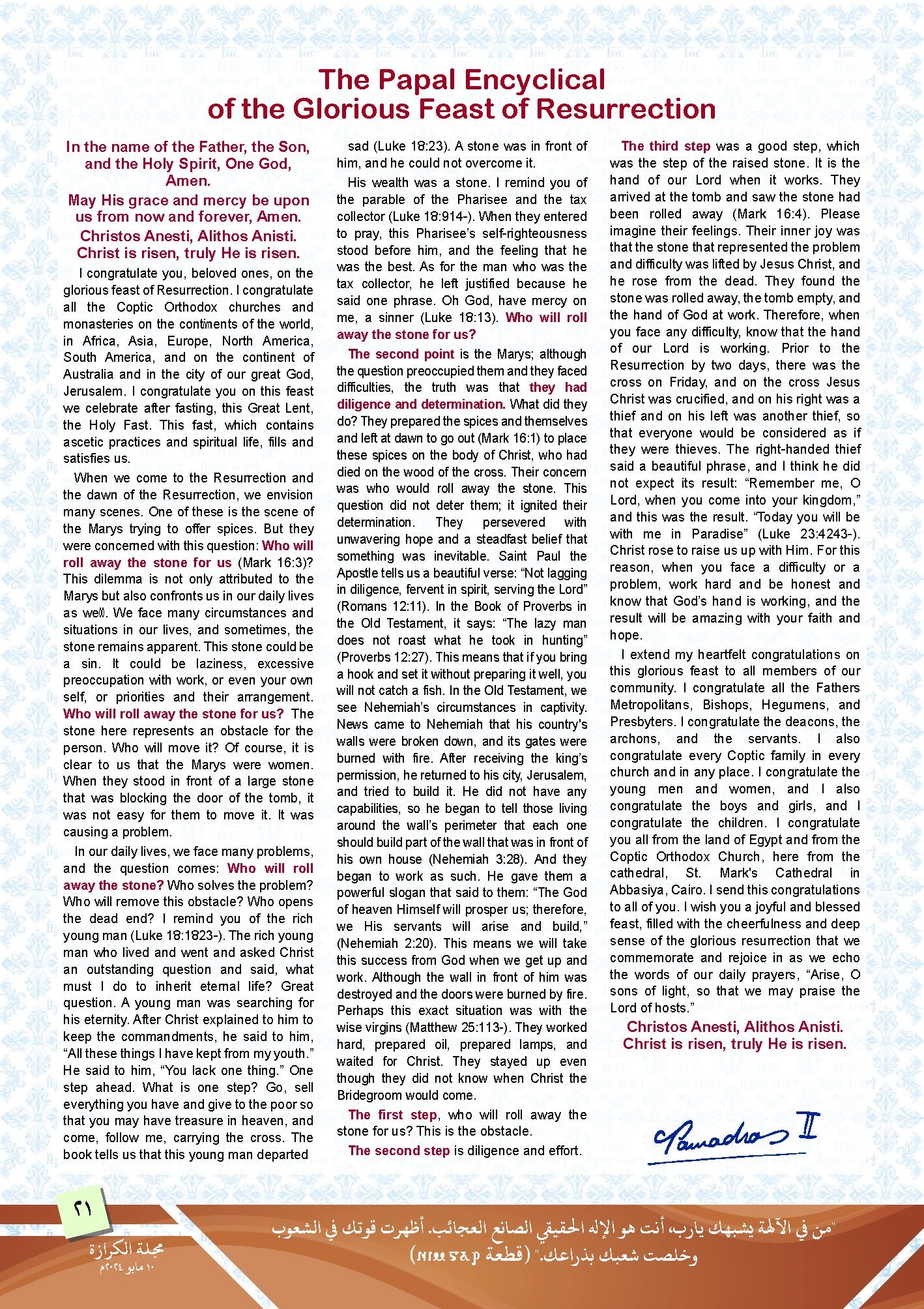Speech of H.H. Pope Tawadros II
Dr. Kuminetz Géza Chancellor of Pázmány Péter University…
Distinguished Professors, members of the University Council in Hungary, ladies, and gentlemen of the audience
At the outset, I would like to express to you my deep gratitude and thanks for your warm words and your great interest during this occasion.
It is my pleasure to be here on the land of this beautiful country and to meet a group of distinguished academics, researchers, and guests.
I am also proud to receive this honorary doctorate in an ancient and prestigious university, established hundreds of years ago, with such a long history in study, science, theology, law, and humanities. A university that plays a great role in advancing young students from all over the world and seeks development at all levels.
As I walk through the halls of the university, I reflect on my undergraduate days at the Faculty of Pharmacy, Alexandria University where our professors instilled in us not only knowledge but also hope, optimism, and a passion for learning. They imparted wisdom and encouraged us to commit ourselves to serving humanity. I recall being told that pharmacy is an amalgamation of science, art, and humanity. This understanding fuelled our love for education and guided our journey through it.
We find the same dedication to education within our Coptic Orthodox Church, which firmly believes that education and development form the two pillars that allow it to traverse from one generation to another. The Church, in conjunction with the Egyptian state, has played a pivotal role in establishing numerous public schools. It also contributes to spiritual education via theological colleges and Sunday schools, the latter having been established 105 years ago. His Holiness Pope Shenouda III, my predecessor, referenced this during the receipt of his doctorate from your esteemed university, exactly 12 years ago to this day.
My presence here today underscores the enduring commitment of the Coptic Orthodox Church to science and education. It also reinforces the message we uphold—supporting education and fostering societal improvements worldwide.
Regarding development, it is intended for the betterment of society and is facilitated by our Church through its dedicated servants in pastoral care, spiritual and social development, translation services, libraries, schools, hospitals, student accommodations, refugee assistance, displaced persons’ services, and various publishing platforms, both print and digital. Through these means, we can serve every individual and humanity as a whole.
This is what St. Francis of Assisi once said, “Lord, make me an instrument of your peace. Where there is hatred, let me sow love, where there is injustice, let me bring justice, where there is doubt, let me instil faith, where there is despair, let me kindle hope, where there is darkness, let me be light.”
Through education and development, we present love, which allows us to touch the heart of every individual because it is the pinnacle of all virtues. I would like to elaborate on the concept of love in Christian education for societal development. To illustrate, I will use the five fingers of a hand as a metaphor due to their diversity, cooperation, and integration, and their ubiquity in our daily lives:
First, the love for God the Creator
Saint Anba Anthony of Egypt, the founder of monasticism, said, “Wherever you go, let God be before your eyes.” The first commandment in the Bible is, “Love the Lord your God with all your heart.” Its practical execution comes through a deeper understanding of God, who loved us first. In His love, the churches engage with ecumenical and international bodies, such as the World Council of Churches, the Middle East Council of Churches, and the Council of Churches in Egypt. Through dialogues that deepen our understanding of God and of each other, striving to fulfill His commandment, “that they all may be one, as You, Father, are in Me, and I in You; that they also may be one in Us, that the world may believe that You sent Me.” (John 17:21).
Secondly, the love of nature and its entirety
” In the beginning, God created the heavens and the earth.” (Genesis 1:1), and subsequently, He created mankind and vested them with the responsibility of tending and conserving nature. However, our world is now encountering new challenges such as climate change, global warming, water scarcity, desertification, drought, and so on, which are becoming matters of concern for international and humanitarian organizations. Last year, Egypt, my homeland, hosted the World Climate Conference and played a significant role.
In this context, I’d like to commend your esteemed country’s commitment to renewable energy resources, such as solar and wind power, and its initiatives in waste management, biotransformation, sustainable agricultural programs, and the preservation of forests and water resources. Your country also places great emphasis on education and science, making it accessible to students worldwide. In this vein, I wish to express my gratitude for the scholarships offered to Egyptian students, which allow individuals to understand, manage and study their responsibilities with discernment, awareness, and scholarship.
Thirdly, the love for fellow humans
The world, steeped in materialism, is yearning for genuine love, unable to find a source of love to satisfy it, a need I underscored in my meeting with Pope Francis during his address in St Peter’s Square last May. “We have chosen love even if we are going against the current of the greedy and selfish world. We have accepted the challenge of love that Christ asks of us. We will be true Christians” This is our message. Thus, we commemorate the day of fraternal love with the Catholic Church every 10th of May, illustrating the mutual interest of both churches in fostering such relationships.
In Egypt, we live harmoniously and lovingly with our Muslim brothers, who constitute the majority, we respect each other and collaborate in building, developing, and serving every human.
In a world replete with wars, conflicts, violence, and terrorism, which have caused an upsurge in refugees, displaced people, and the homeless, our responsibility towards humanity has heightened. As the bible tells us to “uphold the weak” (1 Thessalonians 5:14 ).
Fourth, the love of one’s homeland
I would like to speak about my country, Egypt, a distinctive land with a civilization
that has a bright future led by wise and visionary political leadership, a blend that presents a unique flavor to its people.
The Bible states, “Blessed is Egypt My people” (Isaiah 19:25). Over 2000 years ago, Egypt was blessed with the visit of the Holy Family. Today, Egypt is home to some of the world’s oldest churches and monasteries, including the Hanging Church, constructed in the fourth century. As well as, the Cathedral of the Nativity, the largest cathedral in the Middle East, which was inaugurated in 2019.
We are currently in the process of constructing a new administrative capital, designed to be a pioneering smart city. Simultaneously, we are building the Grand Egyptian Museum, destined to be the largest cultural museum showcasing ancient Egyptian civilization. I invite you all to visit once it opens in the forthcoming months.
Fifth, the love of Heaven and Eternity
While we strive to build and serve each other on Earth, our hearts and aspirations always reach out towards Heaven, “He will dwell with them” (Revelation 21:3). We ought to follow the divine commandments that uphold the value of humankind and family as God intended. The word FAMILY through its letter’s spells
Father And Mother I Love You
Here, I confirm Viktor Orbán’s statement, “We must build a wall around our children to protect them from targeted sexual ideology. A mother is a woman, and a father is a man. Leave our children alone.”
We should collectively resist human frailties by taking firm stances against moral challenges that defile human nature as created by God. Our prime mission is to be a light to the world … salt to the earth.
I extend my gratitude again for this honorary doctorate and the opportunity to converse with you. I eagerly await your visit to Egypt.
Thank you for your kind attention.
This page is also available in:
العربية
